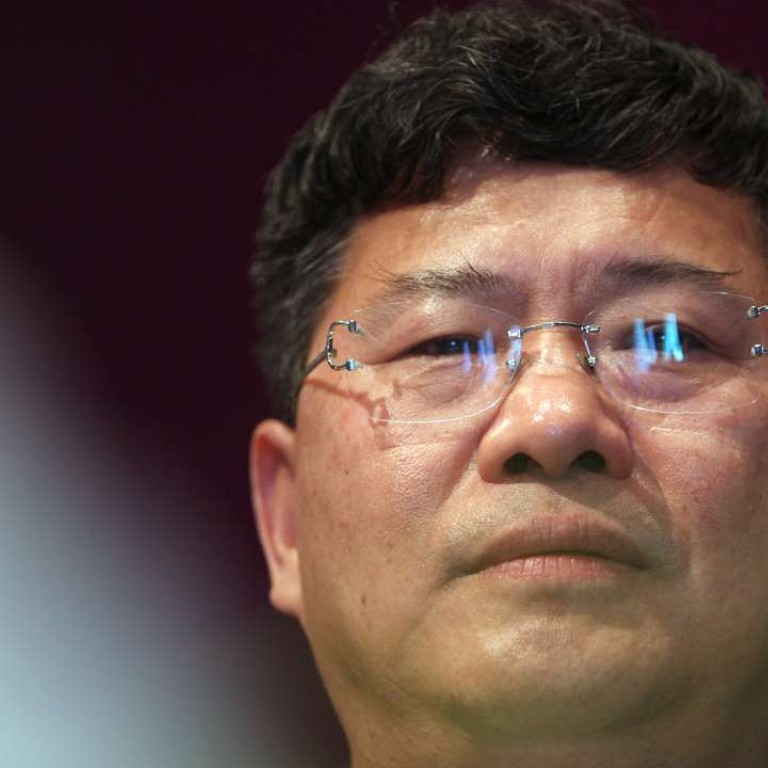
Greenland Holding looks to cross-border e-commerce in drive to diversify into non-property businesses
Shanghai-based Greenland Holding Group, one of the mainland’s three largest property developers, is speeding up diversification into non-property businesses and seeking to bolster a newly launched cross-border e-commerce trading platform.
Greenland said it initially targeted annual sales of 2 billion yuan (HK$2.36 billion), taking a substantial step toward tapping increasing demand for foreign-made consumer products among mainlanders.
“An established trading system could help more than quadruple the sales volume and we envision sales of about 10 billion yuan in 2017 to 2018,” said Xue Yingjie, executive deputy general manager of Greenland’s commercial business division. “The growth potential is huge.”
Greenland chairman Zhang Yuliang is striving to create new growth engines for the developer as the company faces a downgrade to its credit rating due to high leverage.
In mid-June, Fitch Ratings lowered Greenland’s standalone rating to BB from BB+ since its net debt-to-adjusted inventory ratio reached 66 per cent at the end of 2015, higher than expectations of 58 per cent.
The Shanghai-based developer accelerated expansion into finance and consumer-orientated sectors in line with the mainland’s ambition to stoke consumption as a driver of the economy.
The bonded zone in Qingpu district, the city’s second-largest cross-border e-commerce platform links with Greenland’s five procurement hubs abroad to offer logistic services to electronic retailers.
Greenland, which has an overseas presence in 12 cities, also operates its own stores for imported consumer goods across the mainland.
The operation of Greenland’s cross-border e-commerce platform coincides with new central government regulations governing imported items on e-retailing platforms.
In March, state authorities including the General Administration of Customs released a list of more than 1,100 items that could be imported by e-retailers and introduced a new regime for imposing duties on the goods, a move to tighten regulation on cross-border e-commerce.
The new rules also entail stricter customs clearance procedures, including a lengthy inspection process of imported goods that are new to the mainland market.
Customs authorities, grappling with complaints from hundreds of e-retailers, are now studying ways to fine-tune the rules to facilitate the growth of the cross-border online purchases of consumer goods.
“The authorities were criticised for loose regulation on these businesses before,” said a senior official with Shanghai Cross-border E-commerce Association, who declined to be identified. “As the finalised rules take effect, it is believed that large-size players with strong financial and logistic resources will emerge to be the biggest winners.”
Greenland has signed a clutch of agreements with foreign brands and local e-tailers to expand sales of imported items such as diapers, cosmetics and healthcare products via the internet.
“We are establishing the platform to make sure all the procedures are in compliance with the government rules,” Xue said. “A proper regulation across the whole market is of benefit to big players like Greenland.”
He added that Greenland would also offer preferential financing services, such as interest-free short-term loans, to e-retailers conducting businesses via its platform.

